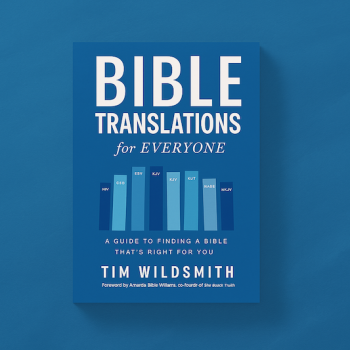James White (in The God Who Justifies )issues this important caution in his treatment of the meaning of the Hebrew and Greek word-groups for justification and righteousness: “there are obvious instances in which the biblical term speaks of a moral or ethical quality when it speaks of someone being righteous. Protestants do not by any stretch of the imagination assert that the words ‘righteousness’ and ‘justification,’ always, and in every instance, refer solely and completely to a divine act of... Read more




















